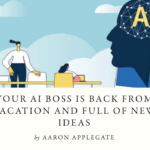Organizations and specialized production are experiencing transformations due to AI, marking just the beginning of this journey. The significance of AI is poised to grow rapidly, with 85% of individuals expressing the need for AI training, and over 80% of businesses either utilizing or planning to integrate AI technologies.
Businesses must develop a strategic approach to ready themselves for AI integration. Rather than treating AI as a standalone resource, many companies are now embracing it as part of their overarching corporate strategy. While concerns exist about AI replacing human jobs, the actual likelihood of such occurrences is minimal. Those who leverage AI effectively are likely to surpass those who do not, both at the organizational and individual levels.
To harness the power of AI within your company, focus on the following seven key areas:
1. Technological Infrastructure
Successful AI implementation necessitates a robust technological infrastructure. This includes dedicated resources for assessing the reliability, security, and impact of AI technologies within the organization.
2. Data Readiness
Training AI models requires quality data. Whether developing custom applications or using off-the-shelf AI tools, having well-prepared data is essential for maximizing AI’s potential.
3. Workforce Knowledge
Equipping employees with the necessary knowledge to effectively utilize AI is crucial. Providing training on AI capabilities, limitations, risks, and benefits is essential for successful AI integration.
4. Organizational Culture
Fostering a culture that embraces change is vital for AI adoption. Implementing change management programs and ensuring leadership support can facilitate the effective utilization of AI technologies.
5. Strategic Alignment
Integrating AI into organizational strategic planning is key. AI should not be viewed solely as a productivity tool but as a core component of strategic initiatives to accelerate goal achievement.
6. Legal and Ethical Considerations
Addressing ethical and legal implications associated with AI usage is imperative. Companies must educate employees on issues such as transparency, bias, privacy, and security to mitigate risks and ensure compliance.
7. Future Planning and Innovation
Continuous innovation and strategic planning are essential to stay ahead in the rapidly evolving AI landscape. Incorporating AI into long-term business strategies can provide a competitive edge and drive future success.
Embracing AI is crucial for businesses to remain competitive and thrive in the evolving landscape. By adopting a comprehensive approach to AI integration, companies can position themselves for success in both the short and long term.






